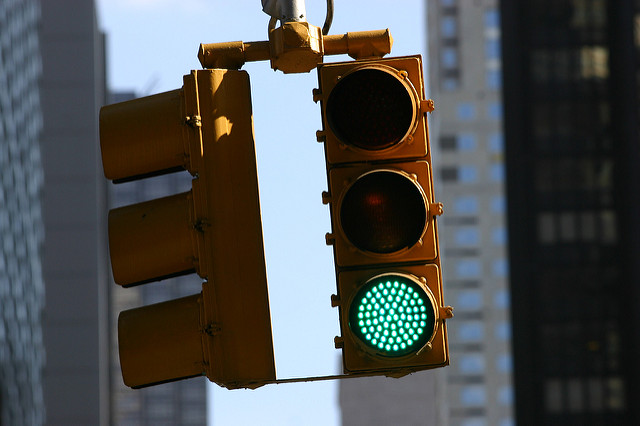
Over the next several months, traffic consultants will be scouring the roads of Nashville, trying to calculate how many people are using about 550 intersections at different times of the day.
It’s part of a $2.2 million project by Metro Nashville Public Works to optimize the timing of traffic signals along 19 major corridors by the end of the year.
The goal, says traffic engineer Chip Knauf, is to create a “green band” of stoplights.
“Once you leave one signal, you might make it through 20 signals, or maybe all of the signals, without having to stop. That’s the objective of the project, really,” he says. “Sometimes it’s just a lottery. You get lucky. But right now, we’re trying to be more scientific, where it’s programmed to give you that green band.”
The last time Metro did a signal optimization project was in 2012, but this is a much bigger endeavor. Besides, timing on stoplights have to be to reset every few years anyway, says Metro traffic engineer Kristen Rice. Once these 550 stoplights are reset, “the clock will start again and we’ll try to redo them in the next four or five years,” she says.
That’s in part because traffic patterns change — more people are using the roads now; sometimes an intersection will add a crosswalk; a new building might dramatically alter the usage of that light. It’s also because the clocks inside traffic lights fall out of sync.
“These traffic signals have to be programmed to be coordinated to the second,” Knauf says. “It would be like your watch losing time or going fast — it throws off that green band.”
Studying and implementing these changes is not cheap: It costs almost $4,000 per intersection. But the city sees a payoff in the time and fuel saved for drivers, Knauf says. “Maybe we don’t get it back in a check that comes in the mail, but there is a savings for the user.”
The project will be led by traffic engineering firm Neel-Schaffer, which is based in Jackson, Miss. and has an office in Nashville. Originally, Metro Nashville had planned to re-time the stoplights over the next two years, but Neel-Schaffer agreed to finish the project in one year, Knauf says. The consultants will start collecting traffic data in the coming weeks.
Metro is also spending another $3 million to upgrade the hardware that runs the stoplights.


